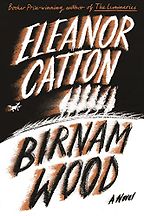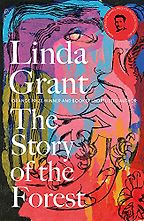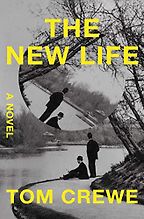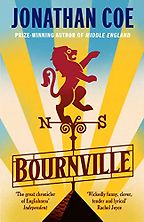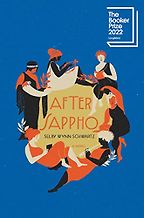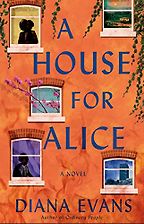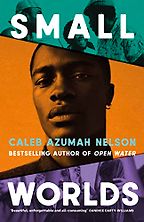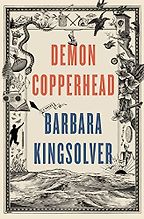Best Political Novels of 2023, recommended by Boyd Tonkin
Last updated: June 11, 2025
THE 2023 ORWELL PRIZE FOR POLITICAL FICTION
Boyd Tonkin, chair of this year's judging panel, talks us through the eight novels that made the shortlist of the 2023 Orwell Prize for Political Fiction
Q. For those of us who don’t know the Orwell Prize for Political Fiction, can you tell us a bit about the prize and what kind of books the judges were looking for?
Boyd Tonkin: There's been an Orwell prize for nonfiction books for almost 30 years now and a few years ago, it was thought that it would be a good idea to create a separate award for political fiction.
It's been running for a few years now and what's been remarkable, I think, is the incredibly wide definition of political fiction that the judges will always look for. There are fairly obvious categories—utopias and dystopias, advocacy books, books based on a particular issue or historical event, books that alert their readers to particular problems or crises that they might not have been aware of, in fictional form.
But, of course, once you start to look at how fiction works, then the boundaries of what is political can extend almost infinitely far. A good example of that, I think, is last year's winner, which is a gorgeous book, Small Things Like These by Claire Keegan. On the face of it, it isn't an advocacy book. It isn't a book about some burning social issue—until you look beneath the surface. It's a very quietly voiced but beautifully written story of a man faced with the possibility of doing something about a fairly terrible, abusive institution on his own doorstep. It's about the process of making a decision to go against the crowd and to defy convention, as much as it is about any political ideology or principle. It's a lovely book, it's been enormously popular and it's still something that people recommend to friends. For me, it's almost the perfect definition of what we're looking at for this prize.
Q. It's been a real treat hearing you talk about all the books on the 2023 shortlist (see below). It made me want to read quite a few of them.
Boyd Tonkin: They're really good books and I think it's a great shortlist. Let's see who wins on June 22nd!
Birnam Wood: A Novel
by Eleanor Catton & Saskia Maarleveld (narrator)
☆ Shortlisted for the 2023 Orwell Prize for Political Fiction
🏆 An AudioFile Best Mystery/Suspense Audiobook of 2023
“Eleanor Catton won the Booker Prize for her novel, The Luminaries. This is very different. It’s also set in her native New Zealand, but it’s a kind of environmentalist thriller. It’s extremely witty, extremely pacey, and incredibly well crafted. It’s about the fight over a particular patch of threatened ground in rural New Zealand. A group of guerrilla gardeners wants to use it for their organic ecological project but it’s also in the sights of miners and developers. The clash between them is executed with incredible panache, wit, surprise and suspense.
This is a book which on its back cover has an endorsement from none other than Stephen King, which I think tells you about the narrative drive that Eleanor Catton achieves here. It’s enormously enjoyable and, of course, it raises all of these profound questions about who should control the land and how it can be protected from environmental degradation.”
“One of the biggest books of the season must be Eleanor Catton’s hotly anticipated third novel Birnam Wood. Pitched (somewhat unexpectedly) as a psychological thriller, it follows the members of a guerilla gardening group as they take over an abandoned farm in cautious partnership with a paranoid American billionaire with plans to build his own survivalist bunker.” Read more...
The Notable Novels of Spring 2023
Cal Flyn, Five Books Editor
The Story of the Forest
by Linda Grant
“This is a book not only about migration, but about storytelling and how people tell the story of their lives. It begins with a kind of fairy tale, of a young Jewish girl in a Latvian forest outside Riga in the early 20th century. She meets what might be fairytale villains, but in fact are young Bolsheviks having a political meeting. It follows the trajectory of this girl, Mina, and of her family. They originally want to emigrate to America but, as with many Eastern European Jewish emigrants of that time, they actually end up in Britain, in Liverpool.
It’s a wonderfully vivid and intense resurrection of the lives of Jewish Liverpudlians through the 20th century, but it’s also about how people and communities change in a society that is perpetually in a state of flux. We see how both the central heroine and her children and grandchildren fare throughout the 20th century, how great social events impact on their lives, but equally how they carve out a space of freedom within those historical pressures. It’s also a very witty book. It’s beautifully observed. It has this wonderful tension between what you might call the fairy story narrative—with its miracles and wonders and transformations and reversals—and the relentless march of history, and the way that those two different types of story sometimes coexist but sometimes diverge.”
“It’s the story of a brave attempt to rationalise sexual behaviour, and thus remove the stigma attached to homosexuality. Tom Crewe has used, quite loosely, the lives of two men, John Addington Symonds and Havelock Ellis who, in the book, become John Addington—a single-minded man who wants to create a world in which everybody is free to live as their nature dictates, but who is also flawed and selfish; and Henry Ellis, a shy, fragile, clever man who wants the same thing. Both these men personify that high Victorian belief that if only one could educate people, people would understand and accept. So, by proving that homosexuality has always been a part of human life and human nature, they hoped it would become ordinary, as indeed has happened now in the UK. But what happens when principle, rational thinking and hope crash into reality? Will they succeed or themselves face ruin? That’s the great tension at the heart of the book. There’s a rare honesty in the writing of this book. It’s written so directly, the sex graphic yet unsensational. Tom Crewe is a true craftsman.” Read more...
The Best Historical Fiction of 2024
Katharine Grant, Historical Novelist
Bournville
by Jonathan Coe
“Over several decades Jonathan Coe has emerged as one of the great state-of-the-nation novelists of our time. He writes about ordinary people living through the transformative changes of postwar Britain. Bournville is another episode in a cycle of books. It shares some of the same characters with books he’s written before. It very cleverly takes particular moments from VE Day in 1945—and the sense of exhilaration at the end of the war—right up to the COVID lockdown of 2020.
Through these snapshots, Bournville tells the story of one woman and her family and the culture as a whole. He’s wonderfully precise and vivid about the texture of everyday life. At the same time, there is this great overarching sense of historical change—not only how it’s appreciated in the abstract, in terms of political events, but how it feels on the inside, how social change imprints itself in the emotional and cultural life of ordinary people. He accomplishes that in very subtle but brilliant forms.”
After Sappho
by Selby Wynn Schwartz
“This was maybe the most formally adventurous of the books on our list of finalists. It’s about the early stages of women’s search for liberation and social, sexual, and specifically artistic emancipation. Its chronological range is from the 1880s to the 1920s and 30s. It’s a kind of mosaic documentary novel. It takes real lives, not only famous ones—like Virginia Woolf, Vita Sackville-West, or Sarah Bernhardt—but also lives which have been lost to history, of women who fought against patriarchal norms and heterosexual expectations in the late Victorian era and the early 20th century. It puts these stories together into a remarkable jigsaw, where we can both appreciate them for what they are and see how these isolated struggles connect into what will become a wider movement.
It’s also about how to tell the stories of people who have been either erased by history or somehow betrayed or stereotyped by conventional kinds of reminiscence. It’s quite a moving book. It’s sometimes an angry book, but it’s also stylistically and structurally very sophisticated and extremely intriguing.”
A House for Alice
by Diana Evans
“A House for Alice shares some characters and plot lines from an earlier book by Diana Evans, called Ordinary People. The great political event at its heart is the Grenfell Tower tragedy. That disaster more or less bookends the plot, but it’s not otherwise driven by public events.
This is a book about the search for home, about the meaning of belonging, what can allow you to belong in a community and what can hinder that process of homecoming. As with her previous books, it’s about black Londoners, mostly. It’s about people very much embedded in their city and their community watching it change. Sometimes they feel entirely grounded. Sometimes, as political events shift and things like the hostile environment policy come in, they feel more alienated and pressurized. It’s about the relationship between family, community, and social life. It’s another book that has the wonderful finesse and sensitivity of small-scale observation allied to a very firm grasp of the big social and political picture.”
Small Worlds
by Caleb Azumah Nelson
“Small Worlds by Caleb Azumah Nelson is a book about family, about music, about growing up in a Ghanaian family in South London—specifically, in Peckham. It’s very lyrical, it’s very tender. It has a wonderful eye for the idealism and vulnerability of youth. It’s also about growing up as a black Londoner and the challenges that even in the time it is set—in the early 2010s—still confronted any black kids in a community like that. Its political content is not strident. It’s not on the surface. It’s deeply embedded in the process of celebrating family life and, also, the music that for this character and for his friends represents a very specific kind of liberation. It’s about memory and freedom and the kinds of love that bind a community together and, for me, that’s certainly political enough.”
Demon Copperhead
by Barbara Kingsolver
🏆 Joint winner of the 2023 Pulitzer Prize for Fiction
🏆 Winner of the 2023 Women’s Prize for Fiction
“It was criticised as being poverty porn, but I don’t really see that. It does risk being wildly sentimental, but I kind of like that. It’s old school. It has a confident, Dickensian snap and brio, a broad, swinging-for-the-fences ambition, and it worked for me. And the ending is the complete clichéd happy ending. Yet, because it’s such an enormous book, when you get there you feel like you’ve earned the big sentimental pay-off. I really liked it. It had me welling up.” Read more...
The Best Historical Fiction Set in the American South
Xan Brooks, Novelist
